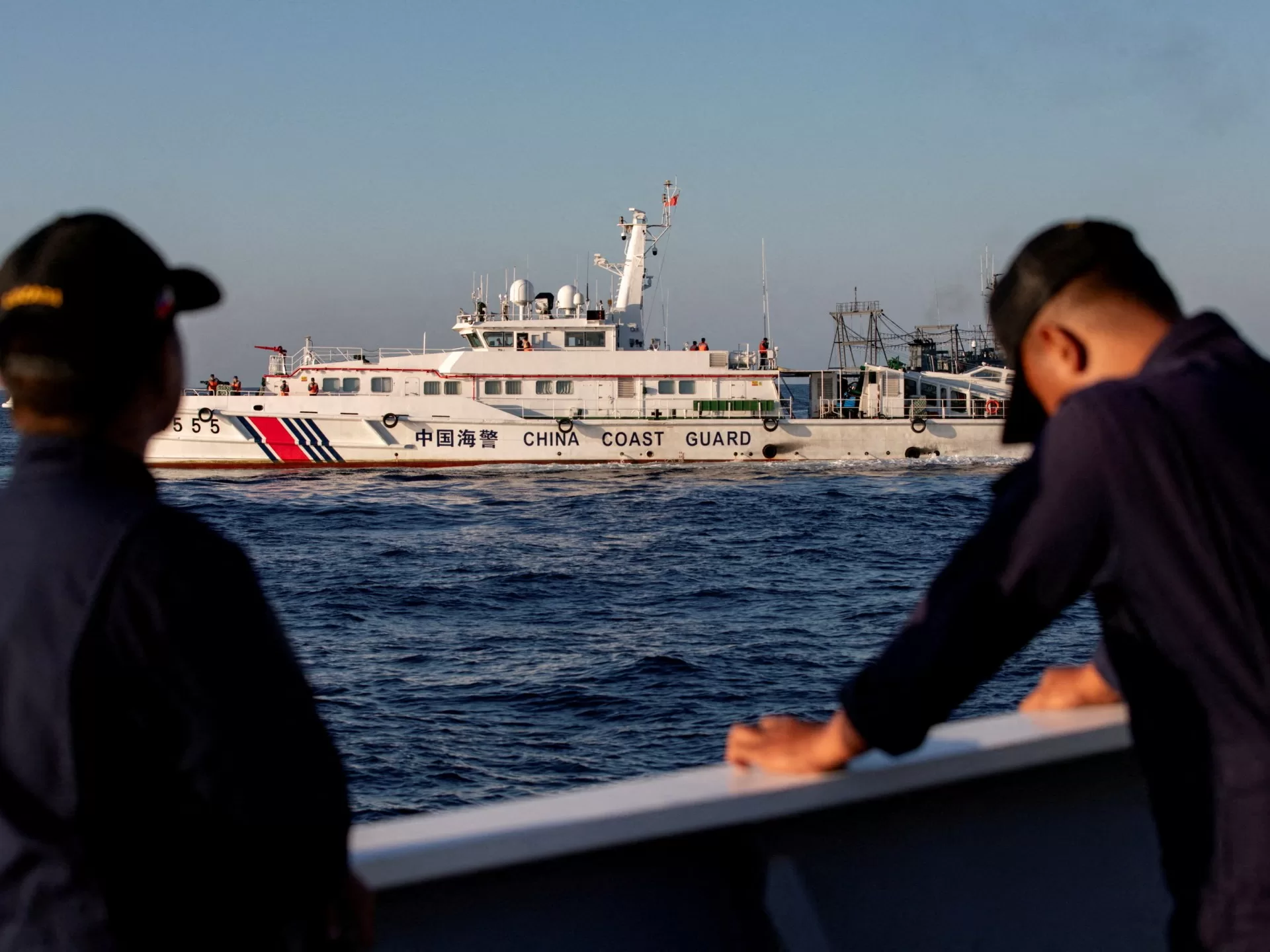Provisional agreement aims to defuse tensions after a series of clashes on the Second Thomas Shoal, which both countries claim.
China and the Philippines have struck a deal to defuse tensions on a contested shoal in the South China Sea, according to the Philippine government.
The deal, hashed out on Sunday by Chinese and Filipino diplomats in Manila, lays out provisional terms to replenish Filipino troops on the Second Thomas Shoal, which both countries claim as their own and where their forces have repeatedly clashed.
Announcing the deal, the Philippine Department of Foreign Affairs said, “Both sides continue to recognise the need to de-escalate the situation in the South China Sea and manage differences through dialogue and consultation.”
There was no immediate comment by China.
The shoal, which lies about 200km (124 miles) from the western Philippine island of Palawan and more than 1,000km (620 miles) from China’s southern Hainan island, has been a focus of clashes between the two countries in recent months.
In the worst confrontation, Chinese forces on motorboats repeatedly rammed and then boarded two Philippine navy boats on June 17 to prevent Filipino personnel from transferring food and other supplies, including firearms to the ship outpost in the shallows of the shoal, according to the Philippine government.
After repeated ramming, the Chinese seized the Philippine navy boats and damaged them with machetes and improvised spears. They also seized seven M4 rifles, which were packed in cases, and other supplies. The violent face-off wounded several Filipino navy personnel, including one who lost his thumb, in a chaotic skirmish that was captured in video and photos.
China and the Philippines blamed each other for the confrontation and each asserted their own sovereign rights over the shoal, which Filipinos call Ayungin and the Chinese call Ren’ai Jiao.
The United States and its key Asian and Western allies, including Japan and Australia, condemned the Chinese acts at the shoal and called for the rule of law and freedom of navigation to be upheld in the South China Sea, a key global trade route with rich fishing areas and undersea gas deposits.
The June 17 confrontation prompted Beijing and Manila to hasten on-and-off talks on an arrangement that would forestall future clashes, reported The Associated Press news agency, quoting a Filipino official.
In addition to China and the Philippines, Vietnam, Malaysia, Brunei and Taiwan have been locked in separate but increasingly tense territorial disputes in the waterway, which is regarded as a potential flashpoint and a delicate fault line in the US-China regional rivalry.
The US military has deployed navy ships and fighter jets for decades in what it calls freedom of navigation and overnight patrols, which China has opposed and regards as a threat to regional stability.
